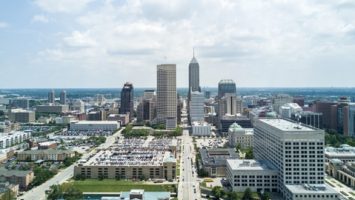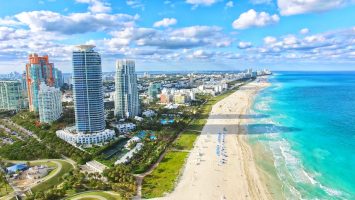
The day Bob Bennett became Chief Innovation Officer in Kansas City, Missouri, he couldn’t have known he would be leading a team of approximately 50 people, nationwide, to develop a standard for smarter municipal dashboards in less than a year.
“Two days after I arrived, the Smart Cities Challenge was unveiled by the Department of Transportation. We needed to take what was already going on in the heart of our downtown, add something five times that size, and do it in six months or less,” said Bennett.
Kansas City provides free WiFi, 25 information kiosks, and smart street lights to a 50 square block city core. “The WiFi is sufficiently stable so that, if I start to download a book between my walk from here to the other side of town, it’s complete when I arrive,” Bennett said. “It’s a pretty solid network.” The seven-foot kiosks alert citizens of important announcements and provide advertising. Smart street lights contain sensors that allow the city to count people and traffic and to better understand the flow of downtown.
While they didn’t win the biggest check from the Challenge, Bennett credits the undertaking with helping the city get its ducks in a row and with a small amount of funding that moved them forward.
“Through the process, we began to appreciate the role a data platform could provide for a city,” Bennett said. So, when asked to join a separate program, the Global City Teams Challenge, led by NIST, in partnership with US Ignite, he agreed to participate. In fact, Bennett now leads a SuperCluster of 12-15 cities, five companies, and two universities.
Each city brings something different to the cluster’s discussion of municipal dashboards. Leaders from Bellevue, Washington are able to share how they are puzzling through public safety and economic development metrics; while Bennett and others from Kansas City have significant experience with transportation and can contribute from the analytics platform perspective, for example.
“On the left of the spectrum, we need strategy in order to do anything. On the right of the spectrum, we have data analysis that either validates or invalidates the strategy. Every city has public works, public safety, a utility, water. There are a lot of services we provide,” Bennet said. “So, there is, we believe, a set of data or a set of algorithms that can you if you’re doing these things at an optimal level. What SuperClusters focus on right now is that spot in the middle so that individual cities, regardless of their size, can assess if they are doing things optimally so they can create strategy.”
When asked what success looks like, Bennett thought for a moment. The collaboration and progress to date is a marker, but he finally landed on the creation of a standardized playbook. Making something replicable is the cornerstone of the work of action clusters around the country.
“There is no road map, but there is a North Star: supporting 21st century citizens and cities.”
Learn more about Kansas City, Missouri on its smart cities site http://kcmo.gov/smartcity/, or talk to them on Twitter @KCMO.


